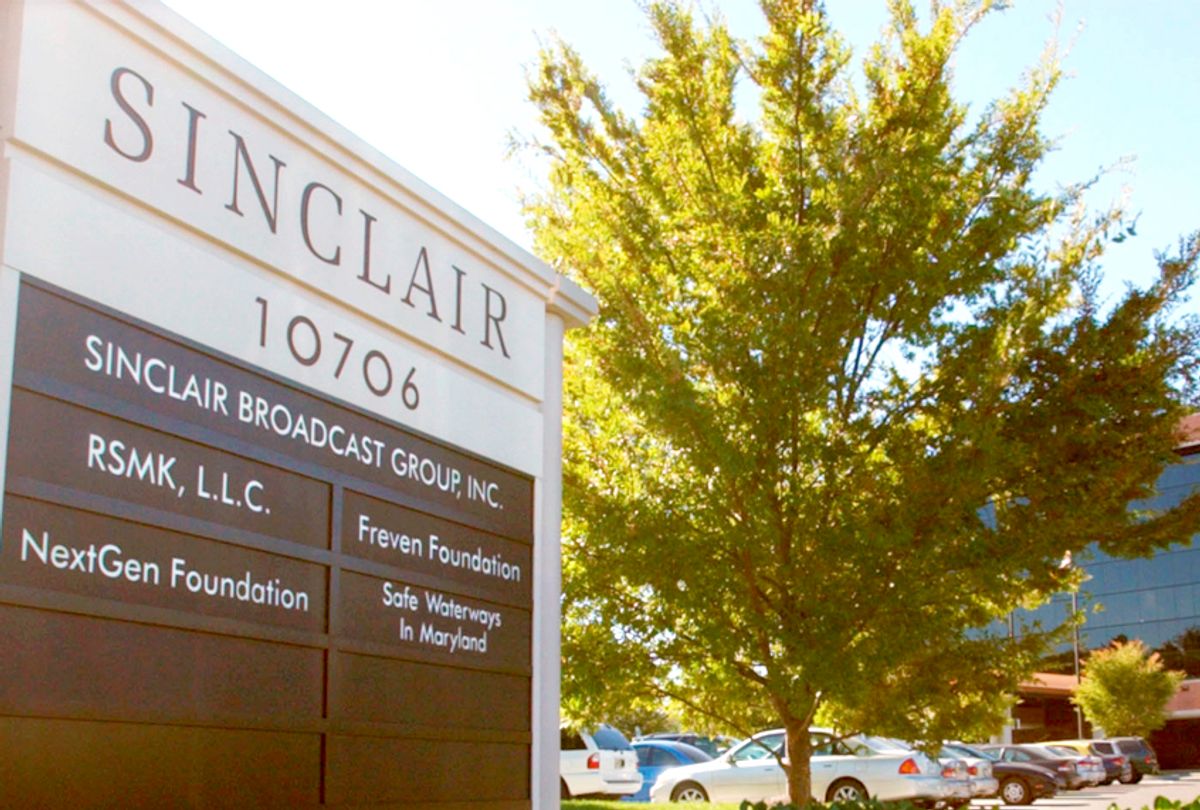Sinclair Broadcast Group is planning to merge with Tribune Media Company, in a deal that would make it the nation's largest broadcaster. Yet in the process, the conglomerate has refused to honor a request from the Federal Communications Commission: a list of TV stations it has to sell in order to meet ownership limits.
In a document filed on Thursday, Sinclair said licenses in at least two markets would have to be sold to meet current national TV station ownership limits, the Baltimore Sun reported.
The lack of transparency in the merger poses a unique and seldom-discussed threat to newsrooms across the country.
If the $3.9 billion merger with Tribune Media Co. is approved, the broadcaster would own 233 television stations and reach 72 percent of households in the country, the Sun reported.
HBO late-night host John Oliver previously blasted the broadcast group for its injection of right-wing viewpoints into news segments, as well as its "must run" segments, which feature Sinclair executive Mark Hyman and political analyst Boris Epshteyn, a former senior adviser to President Donald Trump's campaign.
Oliver said more people should be aware of the "potential problems in corporate consolidation of local news."
The relationship between news media and the federal government has been on the public's mind lately. President Trump has been openly hostile towards journalists since his campaign days; he tweeted on Wednesday that NBC should have its broadcasting license revoked and told a reporter that he thought it was "frankly disgusting [that] the press is able to write whatever it wants." Yet his animus towards news media extends only to those who are critical of him, and his administration is poised to quietly green-light a massive media merger for a company infamous for its strong conservative biases.
Meanwhile, rather than fulfill the FCC's request to provide information on specific station sales, Sinclair hired the investment bank Moelis & Company "to help it identify potential buyers."
"Moelis has contacted a substantial number of potential buyers, consisting of both broadcasters and financial investor/management teams, many of which have signed non-disclosure agreements," Sinclair said in the filing, the Baltimore Sun reported. "The outcomes of negotiations with potential buyers could impact the license divestitures Sinclair would make."
The Sun elaborated:
The U.S. Department of Justice also is reviewing the proposed deal and is expected to complete that by the end of the year. Because the Justice Department could require specific divestitures of TV stations, it’s premature for Sinclair to finalize divestiture plans before then, the company said.
Approval of the acquisition has appeared likely because the FCC recently relaxed rules for broadcast station ownership. The proposal has generated opposition from groups such as Dish Network LLC, the American Cable Association, Free Press, Public Knowledge and Common Cause. Opponents say the deal will hurt media competition and consumers.
Regardless of Sinclair's disregard for the FCC's rules, the agency is likely to approve the merger.



Shares